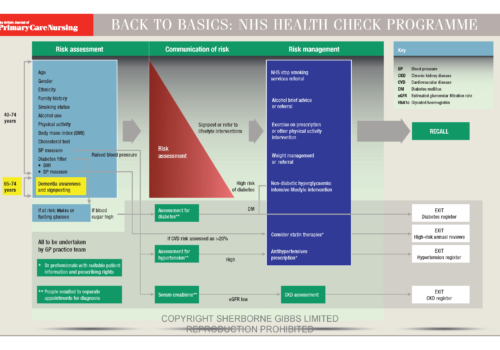Warfarin is highly effective in preventing strokes in people with atrial fibrillation (AF), but has its limitations. Only half of patients who could benefit actually receive warfarin, resulting in an estimated 7000 avoidable strokes each year.
Editorial
I was listening to the radio the other morning as the news was breaking that polyunsaturated fats seem to be no better for your heart than good old butter. My friend Mike Knapton from the British Heart Foundation was interviewed and in his radio clip he said: “Choose something for taste and texture!” Now I would bet my life savings, if I had any, that he was edited, and that he would have gone on to advise moderation in all things and that it is important to reduce the amount of fat in the diet.
Let’s talk about sex to men with diabetes
Erectile dysfunction (ED) is three to four times more common in men with diabetes, and 20% have the condition at diagnosis. ED is a marker for heart disease, and men themselves value the opportunity to discuss their sexual problems with a health professional. The annual diabetes review offers the opportunity to identify and treat these men. Some practice nurses may find this task daunting, but treatment of ED can help to improve a man’s wellbeing and reduce his cardiovascular risk.
JBS3: A ‘heart age’ approach to cardiovascular risk
The long-awaited Joint British Societies’ consensus recommendations for the prevention of cardiovascular disease (JBS3) were issued at the end of March.
Back to Basics: NHS Health Check Programme
Catching the sun: The facts about vitamin D
The last decade has witnessed an explosion of interest in vitamin D. The vitamin has an established role in promoting bone health, but should we be routinely testing vitamin D levels in our patients? And what is the evidence that supplementation improves health beyond the skeleton?
Emergency! Recognising and treating anaphylaxis
A patient may present at any time suffering from the signs and symptoms of anaphylaxis, (a severe, life-threatening, generalised or systemic hypersensitivity reaction). This article explains how to recognise anaphylaxis and how to treat anaphylactic shock. It also outlines the responsibilities of practice nurses and other members of the primary healthcare team after a patient has had a suspected anaphylactic reaction.
Editorial
Well, how fast things change! The latest figures show that a massive proportion of practice nurses and nurse practitioners are going to retire in the next few years—me included, I guess. I am very aware that this exodus is already starting to have an impact on primary care, as I am receiving requests for advice from brand-new practice nurses, who may be established nurses but are not general-practice prepared. This is scaring me and should frighten everyone else.
Whatever has happened to QOF?
After several years of incremental adjustments and more new indicators, massive changes have been made to the new Quality and Outcomes Framework (QOF). So let us have a look at the facts and think about the implications of these changes for our daily routines from April.
How to eat well if your appetite is poor
www.leedscommunityhealthcare.nhs.uk
Food first: supporting adults with poor appetites
Malnutrition is a cause and consequence of disease, and affects at least 3 million adults in the UK, most of whom live in the community. By helping these vulnerable patients to eat the right types of food rather than use inappropriate supplements, practice nurses can not only help prevent and treat malnutrition, but also save the NHS millions of pounds each year.
Why and when to test for anaemia
In primary care, sending blood samples to the laboratory is so routine that it is easy to take these tests for granted. But it is important to understand the purpose of each test; when it is appropriate; and how to act on the results. Here red blood cell tests and their role in identifying possible causes for anaemia are discussed.























